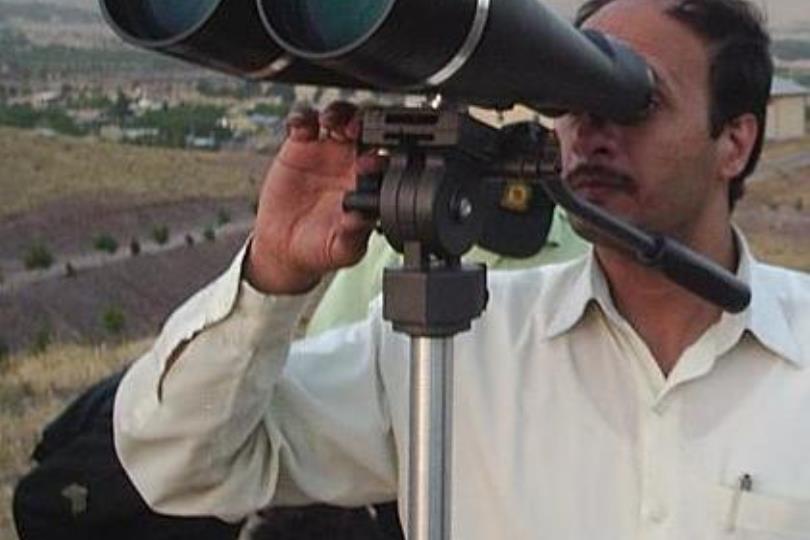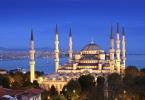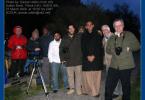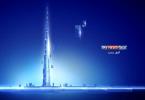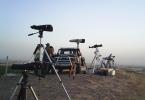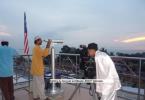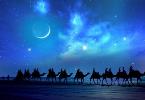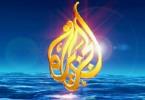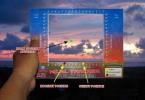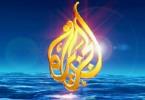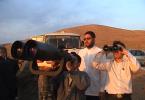Communiqué from Muslim Astronomers (and members of ICOP’s Scientific Committee) regarding the “sighting” of the crescent of Eid-ul-Fitr 1432
The decision by the authorities in Saudi Arabia, in Egypt, and in Algeria to proclaim Eid-ul-Fitr 1432 on August 30 (2011) has caused one of the biggest controversies of recent years. Indeed, a week earlier, 22 Muslim astronomers and experts had released a communiqué stating that the sighting of the crescent on Monday August/Ramadan 29 was not going to be possible, and so did a number of other astronomy individuals and institutions.
As Muslim astronomers (most of us university professors who have published papers on the question in refereed international journals) and as a formal scientific committee of ICOP (the most specialized body on the subject in the world), we see it as our duty to issue this clarifying statement in a quiet and objective manner. We also wish to say, in passing, that amateurs in Astronomy often possess high skills and experience and sometimes make discoveries that are hailed and adopted by the specialists, for the sky is open to all and the sophisticated instruments and techniques have become available at low cost; hence, it is wrong and unfair to describe people as “amateurs” as if this was a flaw.
Our moral and religious responsibility leads us to present the facts clearly to all who objectively seek the truth; indeed, we say loud and clear: the crescent could not be seen from the Muslim world on that night, whether by naked eyes or with telescopes.
Now, we wish to stress that our criticism is not on the fact that Eid was proclaimed on August 30, for it does not bother us as astronomers to have had Eid on Tuesday 30 or Wednesday 31, as such a decision is the prerogative of the institutions that hold that right, and each bases its decision on some Fiqhi (jurisprudential) principle. And indeed, there were several options available for the fuqahas (Muslim jurists) on Monday 29, as we explain briefly below. The problem and our criticism are simply that these fuqahas gave themselves the scientific prerogative to decide what crescent could or could not be seen. This is purely an astronomical issue, and just as the fuqahas do not allow astronomers or specialists in other fields to speak on any religious matters, we do not understand how they insist (and continue to do so in articles they publish themselves) that this crescent can or cannot be sighted.
Let us summarize very briefly the astronomical facts pertaining to the 29th of Ramadan/ August: in the northern half of the Muslim world (higher than Riyadh, roughly), the moon set before the sun; in the southern half, the moon set after the sun but with very short time lags (less than 10 minutes, and in many places less than 5 minutes, where the all-time world record for a crescent seen by naked eyes is 29 minutes, and by telescopes 20 minutes), so that the crescent could not be seen in all such regions and conditions. Visibility was only possible by telescope in Southern Africa, and by naked eyes in the lower parts of South America.
Therefore, fuqahas had 3 options that were scientifically and religiously coherent:
1.To base themselves on the presence (not the sighting) of the moon in the sky at a given altitude in one location or another and decree the start of Shawwal for Tuesday 30th; this is the principle/criterion used by countries such Turkey and Malaysia;
2.To accept the possibility of sighting (imkan al-ru’yah) of the crescent in Southern Africa or South America, whether one waits for that sighting to be confirmed or not, and decree Eid-ul-Fitr for Tuesday 30th; this is what the European Council for Fatwa and Research decided;
3.To insist on local or regional sightings and testimonies (as countries such as Oman and Morocco do), and in this case Eid could only be on Wed., Aug. 31; this is what Oman did with its highly civilized announcement a week before and what Morocco did after receiving testimonies on the 30th.
But decreeing that whenever the moon sets after the sun even by one minute or less it is potentially visible as a crescent is simply an attempt to trespass into astronomers’ expertise and prerogatives and an unjustified rejection of the hundreds of papers and thousands of observations that are recorded in the scientific literature, a body of knowledge that we challenge anyone to discredit. Allah say: "Ask those who know (Ahl adh-Dhikr) if you do not know." [Quran 21:7]
As to the malicious campaign that has been waged against astronomers in general (and amateurs in particular) and the accusations that we/they follow whims, superstitions, and such, we deplore it deeply coming from any Muslim, and most particularly from ulamas and officials.
We pray Allah that He lead us all to our senses and reason, that He elevate our deeds, and help us serve the ummah and raise its image in front of the world, and that He pull us together and unite us on the truth. Our Lord, we have conveyed; our Lord, we take Thee as witness.
The signatories:
1.Prof. Nidhal Guessoum, professor of Physics and Astronomy at the American University of Sharjah and Chair of ICOP’s scientific committee;
2.Dr. Ilias Fernini, professor of Physics and Astronomy at the UAE University and member of ICOP’s scientific committee;
3.Dr. Hayman Zain al-Abidin Metwally, professor of Astronomy and Space Sciences at Cairo University and member of ICOP’s scientific committee;
4.Dr. Saleh Al-Shidhani, professor of Astronomy and Space Sciences at Sultan Qaboos University and member of ICOP’s scientific committee;
5.Eng. Mohammad Shawkat Odeh, member of ICOP’s scientific committee;
6.Dr. Mohibullah Durrani, Astronomer, expert in the crescent problem, Columbia University, USA, and member of ICOP’s scientific committee;
7.Mr. Jim Stamm, Astronomer, expert in the crescent problem, USA, and member of ICOP’s scientific committee;
8.Dr. Khalid bin Salah Az-Zaaq, Director of the Buraida Observatory, Saudi Arabia;
9.Prof. Mussalam Shaltout, professor of Astronomy at the National Institute of Research in Astronomy and Geophysics, Helwan, Egypt;
10.Mr. Sulaiman bin Hilal Al-Busaidi, Astronomer at the Sultan’s Court Affairs, Sultanate of Oman;
11.Mr. Hasan Ahmad Hariri, president of the Dubai Astronomy Group, UAE;
12.Ms. Basma Dhiab, vice-president of the Jordanian Astronomical Society, Jordan;
13.Prof. Jalal-Eddine Khanji, Islamic Astronomy exprt and president of Ebla University, Aleppo, Syria;
14.Eng. Ammar bin Salem Ar-Rawahi, Astronomer at the Ministry of Awqaf (Endowments) and Religious Affairs, Sultanate of Oman;
15.Prof. Sharaf Al-Qudah, former chair of the Fundamentals of Religion department at the Jordanian University, Jordan;
16.Dr. Muawiya Sheddad, professor of Astronomy at Khartoum University, Sudan;
17.Dr. Subaih Al-Saidi, Astronomer and consultant at the Ministry of Education, Sultanate of Oman;
18.Eng. Muhammad Salem Al-Busaidi, Astronomer, Sultanate of Oman;
19.Eng. Ali Amraoui, Astronomer at the Ministry of Awqaf (Endowment), Morocco;
20.Mr. Adnan Abdulmonaim Qadi, researcher in Islamic Astronomy, Saudi Arabia;
21.Mr. Ali Al-Hijri, Astronomer and researcher, Bahrain;
22.Prof. Jamal Mimouni, professor of Physics and Astronomy, Constantine University, Algeria;
23.Eng. Sakhr Saif, Emirates Astronomy Association and member of the official Emirati crescents sighting committee, UAE;
24.Prof. Ali Tahar Sharaf-Eddine, Director of Sudan’s Institute of Natural Sciences, member of the Space Sciences, Astronomy, and Meteorology committee, and member of the crescents sighting committee, Sudan.
25.Eng. Mansour Eshgeafa, Head of Astronomy and Observatories Section, Benghazi, Libya.
The decision by the authorities in Saudi Arabia, in Egypt, and in Algeria to proclaim Eid-ul-Fitr 1432 on August 30 (2011) has caused one of the biggest controversies of recent years. Indeed, a week earlier, 22 Muslim astronomers and experts had released a communiqué stating that the sighting of the crescent on Monday August/Ramadan 29 was not going to be possible, and so did a number of other astronomy individuals and institutions.
As Muslim astronomers (most of us university professors who have published papers on the question in refereed international journals) and as a formal scientific committee of ICOP (the most specialized body on the subject in the world), we see it as our duty to issue this clarifying statement in a quiet and objective manner. We also wish to say, in passing, that amateurs in Astronomy often possess high skills and experience and sometimes make discoveries that are hailed and adopted by the specialists, for the sky is open to all and the sophisticated instruments and techniques have become available at low cost; hence, it is wrong and unfair to describe people as “amateurs” as if this was a flaw.
Our moral and religious responsibility leads us to present the facts clearly to all who objectively seek the truth; indeed, we say loud and clear: the crescent could not be seen from the Muslim world on that night, whether by naked eyes or with telescopes.
Now, we wish to stress that our criticism is not on the fact that Eid was proclaimed on August 30, for it does not bother us as astronomers to have had Eid on Tuesday 30 or Wednesday 31, as such a decision is the prerogative of the institutions that hold that right, and each bases its decision on some Fiqhi (jurisprudential) principle. And indeed, there were several options available for the fuqahas (Muslim jurists) on Monday 29, as we explain briefly below. The problem and our criticism are simply that these fuqahas gave themselves the scientific prerogative to decide what crescent could or could not be seen. This is purely an astronomical issue, and just as the fuqahas do not allow astronomers or specialists in other fields to speak on any religious matters, we do not understand how they insist (and continue to do so in articles they publish themselves) that this crescent can or cannot be sighted.
Let us summarize very briefly the astronomical facts pertaining to the 29th of Ramadan/ August: in the northern half of the Muslim world (higher than Riyadh, roughly), the moon set before the sun; in the southern half, the moon set after the sun but with very short time lags (less than 10 minutes, and in many places less than 5 minutes, where the all-time world record for a crescent seen by naked eyes is 29 minutes, and by telescopes 20 minutes), so that the crescent could not be seen in all such regions and conditions. Visibility was only possible by telescope in Southern Africa, and by naked eyes in the lower parts of South America.
Therefore, fuqahas had 3 options that were scientifically and religiously coherent:
1.To base themselves on the presence (not the sighting) of the moon in the sky at a given altitude in one location or another and decree the start of Shawwal for Tuesday 30th; this is the principle/criterion used by countries such Turkey and Malaysia;
2.To accept the possibility of sighting (imkan al-ru’yah) of the crescent in Southern Africa or South America, whether one waits for that sighting to be confirmed or not, and decree Eid-ul-Fitr for Tuesday 30th; this is what the European Council for Fatwa and Research decided;
3.To insist on local or regional sightings and testimonies (as countries such as Oman and Morocco do), and in this case Eid could only be on Wed., Aug. 31; this is what Oman did with its highly civilized announcement a week before and what Morocco did after receiving testimonies on the 30th.
But decreeing that whenever the moon sets after the sun even by one minute or less it is potentially visible as a crescent is simply an attempt to trespass into astronomers’ expertise and prerogatives and an unjustified rejection of the hundreds of papers and thousands of observations that are recorded in the scientific literature, a body of knowledge that we challenge anyone to discredit. Allah say: "Ask those who know (Ahl adh-Dhikr) if you do not know." [Quran 21:7]
As to the malicious campaign that has been waged against astronomers in general (and amateurs in particular) and the accusations that we/they follow whims, superstitions, and such, we deplore it deeply coming from any Muslim, and most particularly from ulamas and officials.
We pray Allah that He lead us all to our senses and reason, that He elevate our deeds, and help us serve the ummah and raise its image in front of the world, and that He pull us together and unite us on the truth. Our Lord, we have conveyed; our Lord, we take Thee as witness.
The signatories:
1.Prof. Nidhal Guessoum, professor of Physics and Astronomy at the American University of Sharjah and Chair of ICOP’s scientific committee;
2.Dr. Ilias Fernini, professor of Physics and Astronomy at the UAE University and member of ICOP’s scientific committee;
3.Dr. Hayman Zain al-Abidin Metwally, professor of Astronomy and Space Sciences at Cairo University and member of ICOP’s scientific committee;
4.Dr. Saleh Al-Shidhani, professor of Astronomy and Space Sciences at Sultan Qaboos University and member of ICOP’s scientific committee;
5.Eng. Mohammad Shawkat Odeh, member of ICOP’s scientific committee;
6.Dr. Mohibullah Durrani, Astronomer, expert in the crescent problem, Columbia University, USA, and member of ICOP’s scientific committee;
7.Mr. Jim Stamm, Astronomer, expert in the crescent problem, USA, and member of ICOP’s scientific committee;
8.Dr. Khalid bin Salah Az-Zaaq, Director of the Buraida Observatory, Saudi Arabia;
9.Prof. Mussalam Shaltout, professor of Astronomy at the National Institute of Research in Astronomy and Geophysics, Helwan, Egypt;
10.Mr. Sulaiman bin Hilal Al-Busaidi, Astronomer at the Sultan’s Court Affairs, Sultanate of Oman;
11.Mr. Hasan Ahmad Hariri, president of the Dubai Astronomy Group, UAE;
12.Ms. Basma Dhiab, vice-president of the Jordanian Astronomical Society, Jordan;
13.Prof. Jalal-Eddine Khanji, Islamic Astronomy exprt and president of Ebla University, Aleppo, Syria;
14.Eng. Ammar bin Salem Ar-Rawahi, Astronomer at the Ministry of Awqaf (Endowments) and Religious Affairs, Sultanate of Oman;
15.Prof. Sharaf Al-Qudah, former chair of the Fundamentals of Religion department at the Jordanian University, Jordan;
16.Dr. Muawiya Sheddad, professor of Astronomy at Khartoum University, Sudan;
17.Dr. Subaih Al-Saidi, Astronomer and consultant at the Ministry of Education, Sultanate of Oman;
18.Eng. Muhammad Salem Al-Busaidi, Astronomer, Sultanate of Oman;
19.Eng. Ali Amraoui, Astronomer at the Ministry of Awqaf (Endowment), Morocco;
20.Mr. Adnan Abdulmonaim Qadi, researcher in Islamic Astronomy, Saudi Arabia;
21.Mr. Ali Al-Hijri, Astronomer and researcher, Bahrain;
22.Prof. Jamal Mimouni, professor of Physics and Astronomy, Constantine University, Algeria;
23.Eng. Sakhr Saif, Emirates Astronomy Association and member of the official Emirati crescents sighting committee, UAE;
24.Prof. Ali Tahar Sharaf-Eddine, Director of Sudan’s Institute of Natural Sciences, member of the Space Sciences, Astronomy, and Meteorology committee, and member of the crescents sighting committee, Sudan.
25.Eng. Mansour Eshgeafa, Head of Astronomy and Observatories Section, Benghazi, Libya.
